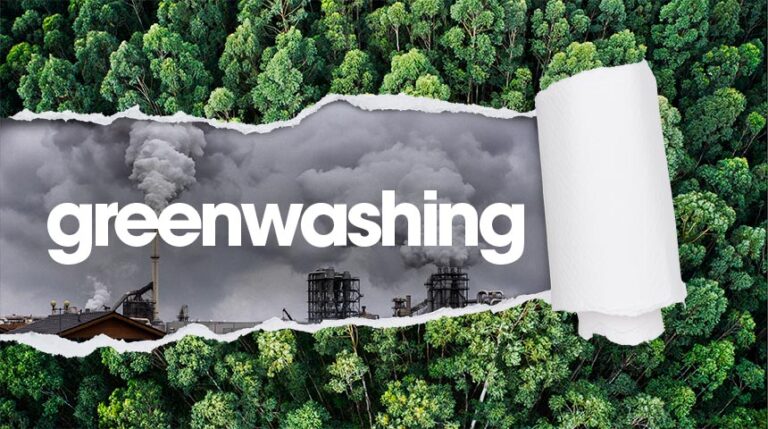The Green Mirage: Unmasking Greenwashing in Ecotourism
Picture this: You're planning the ultimate Kenyan safari, eager to witness the majesty of the Maasai Mara while treading lightly on the earth. Your chosen lodge boasts of being an "eco-paradise," promising sustainability, community support, and wildlife conservation. But as you zip up your khakis, a question lingers: Is it truly as green as it claims, or are you about to step into a cleverly painted mirage?
Welcome to the complex world of ecotourism in Kenya, where distinguishing genuine conservation efforts from greenwashing can be as challenging as spotting a leopard in dense bush! 🐆🌿
The Kenyan Eco-Deception Game
Greenwashing in Kenyan ecotourism is like a chameleon – blending in so well you might miss it. It's when lodges and tour operators use eco-friendly buzzwords faster than a cheetah's sprint, without making meaningful changes to back them up.
Why should this concern you? Because authentic ecotourism in Kenya can be a powerful force for good, supporting wildlife conservation, empowering local communities, and preserving cultural heritage. When it's faked, everyone loses – the environment, local Kenyans, and yes, you, the well-intentioned traveler.
Spot the Green Sheep in a Kenyan Wolf's Clothing
So how can you tell if your "eco" adventure in Kenya is the real deal or just green makeup? Here are some red flags to watch for:
- Vague claims: "Eco-friendly" without specifics? That's as suspicious as a flamingo in the Chalbi Desert.
- Token gestures: A single "adopted" elephant doesn't make a lodge sustainable.
- Lack of recognized certification: Reputable eco-businesses in Kenya aren't shy about their certifications.
- Greener-than-thou marketing: If it sounds too green to be true in the Kenyan context, it probably is.
The Kenyan Certification Landscape: Your Green Compass
Thankfully, Kenya has several reputable certification bodies that can guide your choices:
- Ecotourism Kenya:
- Offers an eco-rating certification scheme for accommodation facilities.
- Look for their Bronze, Silver, or Gold ratings when booking.
- The Long Run:
- Includes some Kenyan properties in its global certification program.
- Members commit to the 4Cs: Conservation, Community, Culture, and Commerce.
- Green Destinations:
- While not Kenya-specific, it has certified some Kenyan destinations.
- Look for their sustainable destination seal.
- African Eco-Labelling Mechanism (AEM):
- A pan-African scheme that can apply to tourism-related services.
Remember, global standards like those set by the Global Sustainable Tourism Council (GSTC) also apply to many Kenyan eco-lodges and tour operators.
Real vs. Ruse: Kenyan Case Studies
Let's look at some examples to illustrate the difference:
Real Deal:
- A lodge in the Mara that employs local Maasai, uses solar power, has a robust waste management system, and actively contributes to anti-poaching efforts. They proudly display their Ecotourism Kenya Gold Rating.
Potential Greenwashing:
- A coastal resort that claims to be "eco-friendly" but offers daily motorized water sports, has no visible waste reduction program, and doesn't engage with the local community beyond hiring a few staff.
Be the Hero of Your Own Kenyan Eco-Story
So, intrepid eco-warrior, how can you ensure your Kenyan adventure is genuinely green?
- Do your homework: Research beyond the shiny website. Look for specific, measurable initiatives.
- Ask questions: How exactly are they sustainable? What percentage of staff is local? How do they conserve water in water-scarce regions?
- Look for certifications: Check for ratings from Ecotourism Kenya or other recognized bodies.
- Support the genuine article: When you find truly sustainable options in Kenya, share your experience!
The Plot Twist: It's Complicated
But here's where it gets as intricate as a Maasai beadwork pattern: sustainability isn't black and white. It's a journey. A lodge might be genuinely trying to improve but not be 100% sustainable yet. In a developing economy like Kenya's, how much imperfection are we willing to accept in the name of progress?
Your Turn: Join the Conversation!
- Have you experienced exemplary eco-practices or potential greenwashing in your Kenyan travels? Share your story!
- What's the most creative "eco" claim you've seen in Kenya that turned out to be hot air?
- How do we balance the desire for authentic eco-experiences with the need for tourism development in economically challenged areas of Kenya?
- Should we support businesses making an honest effort towards sustainability, even if they're not perfect yet?
Let's unmask the imposters and celebrate the real green champions of Kenyan tourism together!



